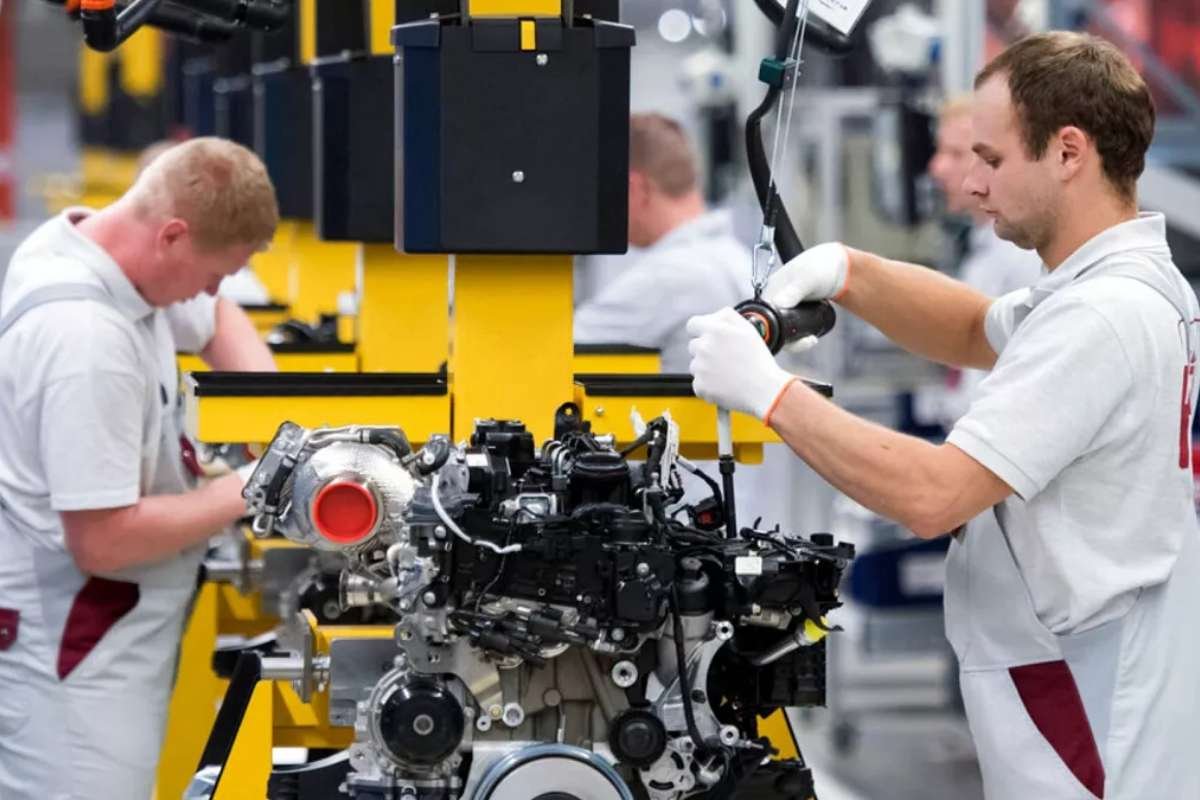Concerns Grow Over Trump’s Proposed 25% Car Tariffs
The German automotive industry is facing mounting concerns over former U.S. President Donald Trump’s proposed 25% tariffs on imported cars and light trucks. In the city of Zwickau, known for its deep-rooted history in automobile manufacturing, workers and business owners fear devastating consequences if these tariffs are implemented. The city, where car production dates back nearly 120 years, plays a critical role in Germany’s economy, with the Volkswagen (VW) plant serving as its primary employer.
At the HENNgineered plant on Zwickau’s outskirts, car parts are manufactured at an astonishing rate—one every second. These components contribute to Germany’s €36.8 billion automotive exports to the U.S. in 2024. However, the introduction of steep tariffs could force manufacturers to shift production to the U.S., leading to job losses in Germany. “Such tariffs would be very hard. It could make companies decide to move to the US to produce there, which might also mean jobs are lost here in Germany,” said Matthias Wissel, the site manager. Local businesses, already facing economic challenges, now worry about the ripple effects on their livelihoods and community stability.
A City Shaped by the Auto Industry Faces Uncertain Future
Zwickau’s strong automotive legacy is showcased in its city museum, where classic German racing cars and vibrant Trabants highlight its pioneering past. However, the focus has shifted from celebrating history to safeguarding the industry’s future. Thomas Stebich, head of the August Horch Museum, acknowledged the widespread apprehension. “If fewer people in the U.S. buy German cars, it will impact production volumes, which in turn affects jobs here,” he said.
The German automotive industry employs around 700,000 people and generates over €540 billion in annual sales. Yet, it has already been battling economic pressures, including high energy costs, rising labor expenses, and stiff competition from China. Domestic demand has weakened due to Germany’s struggling economy, prompting major manufacturers to implement job cuts. Audi recently announced plans to eliminate 7,500 administrative positions by 2029, while Volkswagen anticipates reducing 35,000 jobs by 2030. These existing challenges make Trump’s proposed tariffs a fresh blow to the workforce.
In Zwickau, tensions are running high. A VW works council representative canceled a scheduled interview to engage in crisis talks, highlighting the uncertainty surrounding the issue. Local restaurant owner Aliriza Oernek echoed the growing concerns, stating, “Volkswagen is the biggest employer in Zwickau, the main source of income for people here. If they were to disappear, then people won’t stay in the town anymore.”
Germany Prepares to Respond as Industry Awaits Clarity
The looming tariffs have pushed German automakers and policymakers into a state of vigilance. Volkswagen, like its competitors, is carefully monitoring the situation and evaluating potential impacts on supply chains and production. In a statement, a VW Group spokesperson warned that tariffs and countermeasures could have far-reaching consequences: “We share the assessment of most experts that U.S. tariffs and any counter-tariffs will have negative consequences for growth and prosperity in the U.S. and other economic areas… and continue to advocate for constructive talks.”
While car manufacturers brace for impact, Germany has vowed to take a firm stance against the proposed tariffs. Government officials have indicated that they will not accept the trade restrictions passively and are calling on the European Union to deliver a decisive response. As diplomatic negotiations unfold, the German automotive industry in Zwickau—and across Germany—remains on edge, awaiting clarity on its future in the global market.


















